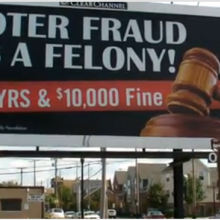voter turnout
Since 2020, a rolling coup of voter suppression laws has left 55 million voters living in states with restrictions on who, how, when, and where people can vote. Also alarming are reports that the majority of Republican candidates in the midterms “deny or question” the 2020 election results. At times, it feels as though the loudest political opinions are coming from people who want to suppress the vote or peddle lies about the 2020 election. But when poor and low-income people, alongside clergy, moral leaders, and activists vote for an agenda that promotes human rights and dignity, we have the power to make a difference.
Through Thursday, 9,009,850 have voted so far this year, with one day of early voting left. That amounts to 53 percent of registered voters. In 2016, 8,969,226 Texans cast a ballot in the presidential race.
Faith communities across the U.S. are looking to help further democracy by ensuring that 100 percent of the eligible voters in their congregations turn out for the 2020 election.
With four weeks to go before Election Day, more than 4 million Americans already have voted, more than 50 times the 75,000 at this time in 2016, according to the United States Elections Project, which compiles early voting data.
The good, the bad, and the ugly of this campaign season has exposed the depth of some of the United States’ racial and ethnic fault lines. But the fault lines themselves are moving. The 2016 electorate will be the most racially and ethnically diverse ever, due largely to U.S.-born Hispanic youth and naturalizations of Asian immigrants.

Image via Brian Snyder / REUTERS / RNS
From the multi-station cafeteria to the gift shop to the theater-style sanctuary, worshipers at Prestonwood Baptist Church believe — or hope — that next year’s election will see something new: long-lost evangelical voters.
“So many don’t vote — it just makes me sick,” said Marjoray Wilemon, a retiree from Arlington, Texas, who has seen a lot of politics in her 94 years.
“I hope that some people will realize what kind of bad shape we’re in.”
Fraud is a strong word. Webster's defines fraud as deceit and trickery, and an "intentional perversion of truth in order to induce another person to part with something of value or to surrender a legal right." Fraud is a serious matter.
The word "fraud" is on billboards around Ohio. I started noticing this a few weeks ago, when I was driving through a working class African American community in Cleveland and noticed a billboard that read: "Voter Fraud is a Felony: 3 1/2 years & $10,000 fine."
The red-and-black sign is accented by a large gavel in the lower right hand corner. A few days later, I noticed a similar billboard in Dayton, and late last week saw two such billboards near my home in urban Cincinnati. In an election season that has seen more jockeying around voter fraud and voter suppression than any in my memory, these billboards caught my eye.
Voter fraud sure sounds horrible, and based on these billboards in Ohio, one would imagine that it is an epidemic. After all, one of the hallmarks of American democracy is our fair and free elections.
But the billboards quickly created dissonance for me based on a recent meeting I and other pastors from Ohio Prophetic Voices enjoyed with Ohio Secretary of State John Husted. During the meeting, Husted told us that voter fraud is extremely rare and almost nonexistent. Statistics back up Husted's contention.
If the GOP presidential primaries have been any indication, voter turnout for November's election could be fairly dismal. Between the uber-polarization of the parties and nationwide trend toward the middle at a voter level, many may opt to stay at home.
The lack of enthusiasm is especially evident in the youngest voting bloc, age 18-24. According to the latest from Public Religion Research and Georgetown University's Berkley Center, young adults are not exactly excited about their prospects of either political persuasion. Further, while one in six of them are registered to vote, only 46 percent plan to cast theirs in November.
But apart from the state of public discourse and apathy concerns of the weary voter, another issue is creeping up that could pose a problem for potential turnout—money.
According to The Atlantic Cities, some cities simply don't have the money—and have to cut elsewhere—to host an election.
"… municipalities are scrambling to pay the costs associated with manning polling places. Some have said they'll put off road repairs while transit crews work on Election Day. Others may borrow workers from other departments to help count votes. In practice, this will likely mean fewer voting precincts, shorter hours and longer lines."
In a culture that is not known for its patience or attention span, how will this trend affect the public's motivation, or lack thereof, to hit the polls in November?





